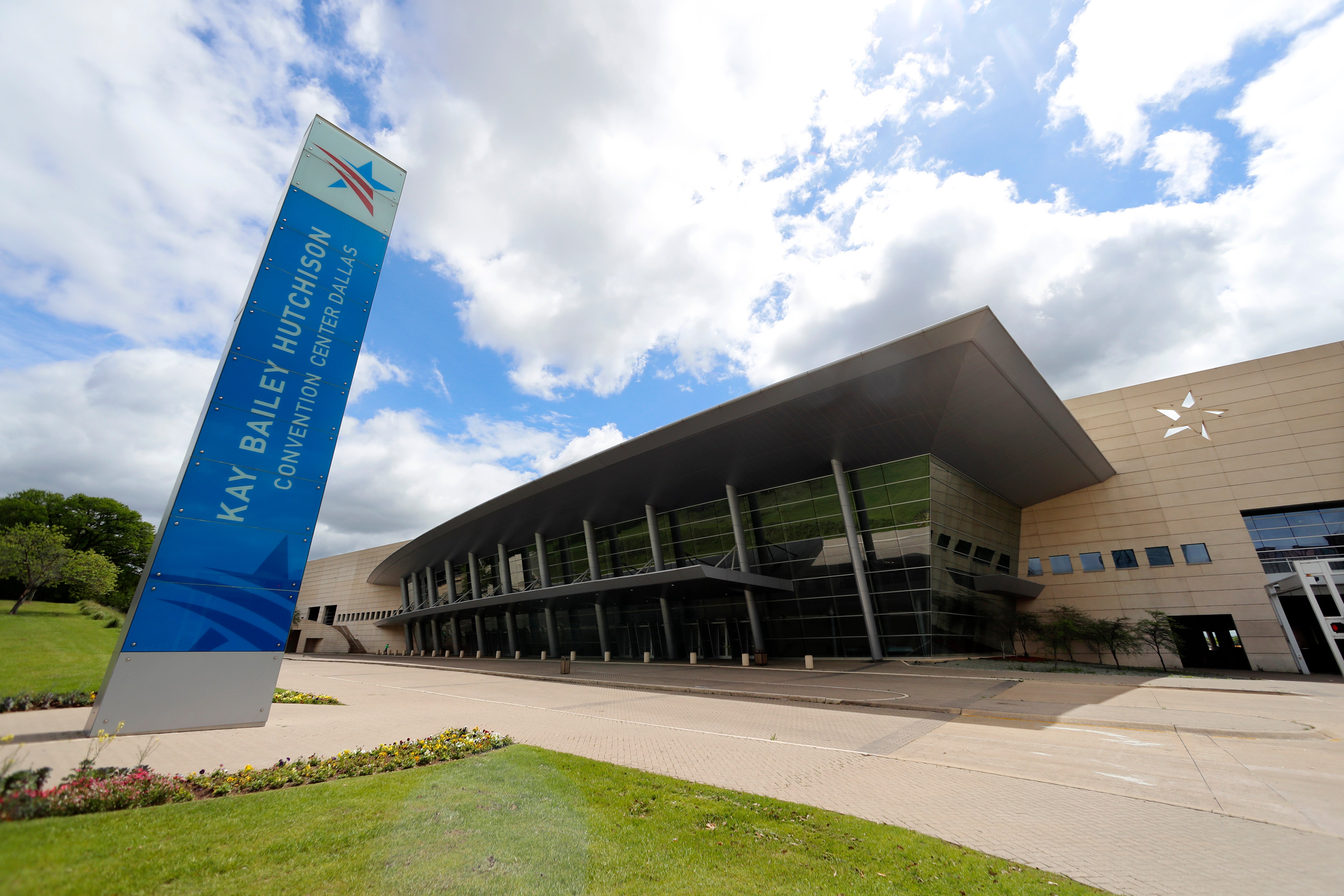US to house up to 3,000 immigrant teens at Dallas site
The U.S. government will use the downtown Dallas convention center to hold up to 3,000 immigrant teenagers as sharply higher numbers of border crossings have severely strained the current capacity to hold youths

Your support helps us to tell the story
From reproductive rights to climate change to Big Tech, The Independent is on the ground when the story is developing. Whether it's investigating the financials of Elon Musk's pro-Trump PAC or producing our latest documentary, 'The A Word', which shines a light on the American women fighting for reproductive rights, we know how important it is to parse out the facts from the messaging.
At such a critical moment in US history, we need reporters on the ground. Your donation allows us to keep sending journalists to speak to both sides of the story.
The Independent is trusted by Americans across the entire political spectrum. And unlike many other quality news outlets, we choose not to lock Americans out of our reporting and analysis with paywalls. We believe quality journalism should be available to everyone, paid for by those who can afford it.
Your support makes all the difference.The U.S. government plans to use the downtown Dallas convention center to hold up to 3,000 immigrant teenagers as sharply higher numbers of border crossings have severely strained the current capacity to hold youths, according to a memo obtained by The Associated Press.
The Kay Bailey Hutchison Convention Center will be used for up to 90 days beginning as early as this week, according to written notification sent to members of the Dallas City Council on Monday. Federal agencies will use the facility to house boys ages 15 to 17, according to the memo, which describes the soon-to-open site as a “decompression center.”
U.S. Health and Human Services is rushing to open facilities across the country to house immigrant children who are otherwise being held by the U.S. Border Patrol, which is generally supposed to detain children for no more than three days. The Border Patrol is holding children longer because there is next to no space in the HHS system, similar to the last major increase in migration two years ago.
A tent facility operated by the Border Patrol in Donna, some 165 miles (265 kilometers) south of Dallas, is holding more than 1,000 children and teenagers, some as young as 4. Lawyers who inspect immigrant detention facilities under a court settlement say they interviewed children who reported being held in packed conditions in the tent, with some sleeping on the floor and others not able to shower for five days.
Homeland Security Secretary Alejandro Mayorkas on Saturday directed the Federal Emergency Management Agency to help manage and care for children crossing the border.
“I am incredibly proud of the agents of the Border Patrol, who have been working around the clock in difficult circumstances to take care of children temporarily in our care," Mayorkas said in a statement. “Yet, as I have said many times, a Border Patrol facility is no place for a child.”
The memo sent to Dallas City Council members says the Federal Emergency Management Agency and HHS will “be responsible for providing shelter management and contracts” for food, security, cleaning, and medical care at the convention center. Dallas previously offered space to HHS during the 2014 surge of crossings of immigrant children.
Dallas City Manager T.C. Broadnax said in a statement that “collective action is necessary and we will do our best to support this humanitarian effort.” He referred questions to HHS, which did not respond to requests for comment Monday.
Asked about housing migrant teens at the convention center, White House press secretary Jen Psaki said Monday that the administration has been looking for additional facilities for unaccompanied children but that she'd have to look into the specifics of the arrangement in Dallas.
“Certainly we would ensure that we’re meeting the standard that we have set out,” she Psaki said.
HHS also has said it will house immigrant youths in Midland. Teenagers began arriving Sunday at a converted camp for oilfield workers where volunteers from the American Red Cross will care for them.
Neither HHS nor the Red Cross would detail how the volunteers have been trained or whether they have undergone FBI fingerprint checks. The Red Cross said in a statement that it was working with HHS to “orient our volunteers.”
“HHS will utilize all available options to care for the children referred to us safely,” the agency said in a statement. BuzzFeed News first reported the opening of the Midland facility.
The surge at the U.S.-Mexico border has presented a major test for President Joe Biden s administration, which promised to break from the more restrictive measures against migrants enacted by former President Donald Trump. Biden has left in place some Trump policies, notably the expulsions of immigrant adults and families under a public-health declaration citing the coronavirus pandemic.
Biden declined to reinstate public-health expulsions of children, and his administration has also been unable to expel many families in South Texas due to policy changes in Mexico's Tamaulipas state, across from the Texas Rio Grande Valley.
Border agents are apprehending more than 400 children a day on average, far more than the number of children that HHS is processing and releasing to sponsors. The Biden administration has announced several policy changes to try to expedite releases, but experts and immigration lawyers say the government could do more to speed up the process, particularly of releasing children to their parents in the U.S.
___
Merchant reported from Houston.